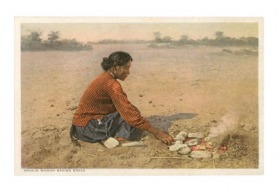Gender Inequality, a Global Perspective
Some analysts speculate that in hunting and gathering societies, women and men were social equals, as agricultural societies had less gender discrimination. During this time women controlled 60 percent of the group’s total food intake. Historian Gerda Lerner (1986) concluded that “there is not a single society known where women-as-a-group have decision-making power over men (as a group).”
How did females become a minority?

How did females become a minority?
Around the world, gender is the primary division between people. Every society has set up boundaries and barriers that are unequal in status. Access, property, prestige, and power are set up on the basis of sex.
Even though female population set out numbers the males, women are considered a minority group because women are discriminated against based on their abilities and cultural characteristics, regardless of their numbers.
The major theory of the origin begins with patriarchy – men dominating society. Life was short back in the early life and to maintain the population children were looked at as a necessity. With children everywhere, women were physically tied to the care and the nurturing of their children for most of their lives because at one point in a woman’s life, she could be carrying a child on her back, breastfeeding another one and be pregnant with one more, or two. This is how the woman assumed the role of homemaker and care giver, as it was not productive in the fields and hunting.
As a result, men became the dominant. Men:
- Hunted
- Contacted neighboring villages
- Waged war
- Men made the weapons
- They accumulated possessions for trade
- Fed the family and or tribe with food
The reason the above is glamorized by society is that men were considered to be risking their lives for their families and or community. Women were “safe” at home. “Women became second class citizens, subject to men’s decisions.
Areas of Gender Discrimination

The Global Gap in Education: Almost 1 billion adults around the world cannot read; two thirds are women.
Country Women Men
Niger 92% 76%
Burkina Faso 86% 66%
Guinea-Bissau 81% 40%
Pakistan 79% 40%
Afghanistan 78% 48%
Sierra Leone 77% 49%
Nepal 76% 41%
Benin 75% 43%
Yemen 75% 32%
Senegal 72% 53%
Mozambique 71% 40%
Bangladesh 70% 48%
Mauritania 68% 47%
Ethiopia 67% 56%
Laos 67% 36%
Mali 66% 51%
Chad 66% 48%
Bhutan 66% 39%
Libya 64% 38%
Morocco 64% 38%
Liberia 62% 30%
Cote d’Ivoire 61% 45%
Burundi 59% 43%
Togo 59% 43%
Egypt 56% 33%
Central African Republic 55% 33%
Eritrea 55% 33%
India 55% 32%
Iraq 54% 34%
Sudan 54% 30%
Malawi 53% 25%
Haiti 52% 48%
The Global Gap in Politics: Around the world women have not access to national decision making. No national legislature has as many women representing society as men. Women come close but they do not dominate this area (Sweden, 43% of their legislature is women). In some countries, women still cannot vote. In most nations, women only hold about 11% of all seats in either parliament or congress.
